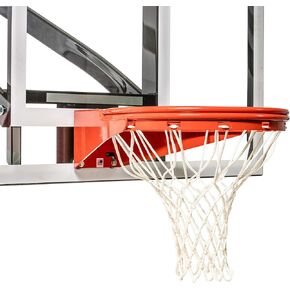- Shopping, made easy.
- /
- Get the app!
What is Corrosion?Corrosion is an electrochemical process of deterioration of metal components when exposed to an aqueous environment (water). This occurs both underwater and in the atmosphere. The deterioration is the process of the metal changing into its oxide form. Steel, for example, will degrade (oxidize) back to its natural stable state - rust (iron ore). You need anodes on your engine because when two different metals are in contact, electrons will flow from the more negatively charged metal (anode) to the more positive metal (cathode). If you want to protect both types of metal you must add a third metal. The most common metal is zinc although magnesium and aluminum are also used. This active metal becomes the anode for both metals. The zinc or aluminum sacrifices itself to protect the other two metals, hence the term "sacrificial anode." Zinc is the most common material used. Zinc anodes are not very effective in freshwater and can stop working after only a few months if not made to mil. specifications. It is a good policy to change them regularly, even if they look OK. Remember, if an anode doesnt wear away it is not working! The aluminum alloy used in anodes is very different from normal aluminum. It includes about 5% zinc and a trace of Indium, which prevents the build up of an oxide layer. Aluminum Anodes last 50% longer and will provide better protection that Zinc. Aluminum anodes can be used in salt and brackish (mix of fresh and salt water) water environments. However in freshwater, due to the increased resistively of the water and reduction of salts, Aluminum and Zinc Anodes will start to passivate, ultimately renders them ineffective. In freshwater it is recommended to use Magnesium Anodes. Magnesium Anodes have a higher driving voltage than Zinc or Aluminum, and therefore are more effective in freshwater. It is not recommended to use Magnesium in saltwater for that very reason.Area and Weight of AnodesThe surface area of the sacrificial anodes
 -33%
Nike Adult Hyperflow Flavor Mouthguard Chocolate
KWD 6
-33%
Nike Adult Hyperflow Flavor Mouthguard Chocolate
KWD 6
 -8%
Nautical Columbus Small Single Brass Marine Vintage Binocular R & J Beck London 1857 Replica Model 5 inches, Antique Brass Finish Table Decor
KWD 12
-8%
Nautical Columbus Small Single Brass Marine Vintage Binocular R & J Beck London 1857 Replica Model 5 inches, Antique Brass Finish Table Decor
KWD 12
 Goalsetter Double Ring Static Basketball Rim Includes Mounting Hardware and Nylon Net,Orange
KWD 67.500
Goalsetter Double Ring Static Basketball Rim Includes Mounting Hardware and Nylon Net,Orange
KWD 67.500
 Magnetic Baseball Lineup Board Set, Hanging Baseball Team Board Coach Clipboard Set with 30 Lineup Magnets Snap Hook Dry Erase Markers Softball Dugout Board for Sport Game Training
KWD 10
Magnetic Baseball Lineup Board Set, Hanging Baseball Team Board Coach Clipboard Set with 30 Lineup Magnets Snap Hook Dry Erase Markers Softball Dugout Board for Sport Game Training
KWD 10